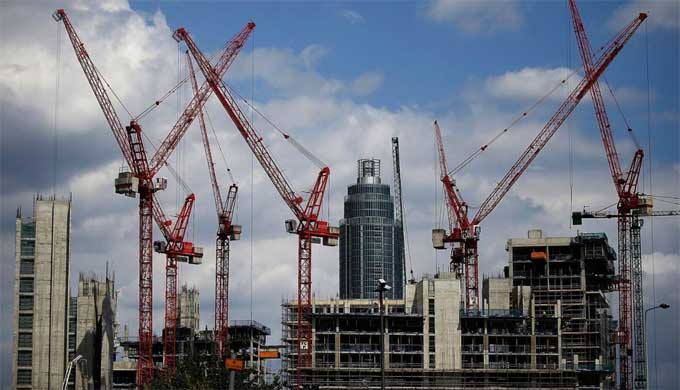
Types of Construction Technology that is Changing the Industry and its Future

The global economy has traditionally benefited greatly from the building sector. Technology is now assisting the construction industry's rapid evolution and transformation, despite its historically low level of change resistance. From the development of the Designing to contemporary drones and 3D printing, technology has contributed to the speed, simplicity, and efficiency of the building.
The construction industry today is more efficient and capable of completing projects more quickly than ever before. New technologies are expected to improve construction accuracy, sustainability, and speed in the future.
Varieties of Construction Technology
The construction industry is growing each day with new technologies and innovations and it is very important for construction companies to stay updated with the latest technologies. The top technology used in construction are:
Drones
A drone is an unmanned aerial vehicle that comes in a variety of shapes and sizes. Despite the fact that they have been around for some time, their popularity is on the rise because of their many benefits. While drones are still relatively new in the construction industry, they have the potential to revolutionize project management.
Building and bridge inspections, aerial surveying, and traffic monitoring are a few of the tasks drones perform in the construction sector. Construction sites can also be supplied with materials by drones.
Land surveying, mapping, and 3D modeling are among the uses of drones in the construction industry. Additionally, they can transport materials and take pictures or videos of a construction project's progress. A lot of potentials exist for drones to be used in construction, which is still in its starting phases.
Wearables and Virtual Reality
Construction is not an exception to how Wearables and Virtual Reality (VR) are already significantly changing many other sectors. These technologies present the construction sector with a variety of potential advantages, including greater safety, increased effectiveness, and lower prices.
Construction professionals can collaborate and communicate more effectively with VR headsets because they provide an immersive experience. Using wearable devices like Google Glass, users can view instructions and notifications directly in their field of view. A construction project using either of these technologies will likely be safer, more efficient, and more productive.
Applications for Data Collection
Technologies have undoubtedly impacted the construction industry in a significant way. Construction projects can be made more efficient and accurate with the use of new technologies, such as drones and BIM. Data collection is one area of innovation that is gaining traction.
It is clear that data collection apps have become increasingly popular over the last few years, and these apps have great potential for the future of construction technology. Gathering data is one of the most important aspects of construction. It is possible to do this manually, but it is often time-consuming and difficult. Data collection apps are becoming increasingly popular among construction companies. Data can be gathered quickly and efficiently with these apps. Over the next few years, construction data collection apps will play a greater role.
3D Printing
Technology for 3D printing is no longer limited to making little items. It is currently being used to create large-scale items and has entered the construction sector. The need for 3D printers in the construction industry has increased as a result.
The field of construction technology is being transformed by 3D printing technology. The technology offers a number of benefits that are making it a popular choice for future construction projects. Construction companies can use 3D printing to create models of their projects before they even begin construction.
Detecting and correcting potential problems can be done before any actual work begins. Construction projects can also be streamlined with 3D printing by creating custom parts.
Implementation of Building Information Modeling (BIM) software
BIM software allows for the visualization of a project before it is built, allowing for easier and more accurate planning of the construction process. It also helps to reduce the amount of waste generated during the construction process, as well as improve safety and reduce the time it takes for a project to be completed.
Throughout the construction industry, Building Information Modeling (BIM) has become an important tool. In addition to creating digital representations of buildings, it makes project management easier for construction professionals. There are a variety of applications for BIM software, including design, engineering, construction, and facility management.
Artificial Intelligence
The construction industry is being transformed in many ways by Artificial Intelligence. Construction projects can be made more efficient and accurate with the help of artificial intelligence. Construction technology is improved and made more efficient by using it in various ways. In the construction industry, AI is being used in the following ways:
1. Safety - With the use of artificial intelligence, job sites can be monitored for safety conditions and potential hazards can be identified before they become serious.
2. Design and Planning - With the help of artificial intelligence, projects can be planned and designed more efficiently and accurately.
3. Pre-fabrication - Artificial Intelligence can be used to create models of buildings that can then be designed and prefabricated off-site, allowing construction time and costs to be reduced significantly.
To learn more, watch the following video tutorial.
Video Source: TileMaster - TechZone
Artificial intelligence will become more significant in the building industry in the years to come. This is due to a number of factors, including the fact that AI can manage massive volumes of data more effectively than humans. AI may also aid in finding and fixing mistakes in construction projects, which can help save time and money.
Final Thoughts
New technologies are constantly introducing changes to the construction industry. These new technologies must be embraced by construction companies in order to remain competitive. Technology such as autonomous vehicles and robotics will shape the construction industry in the future.


